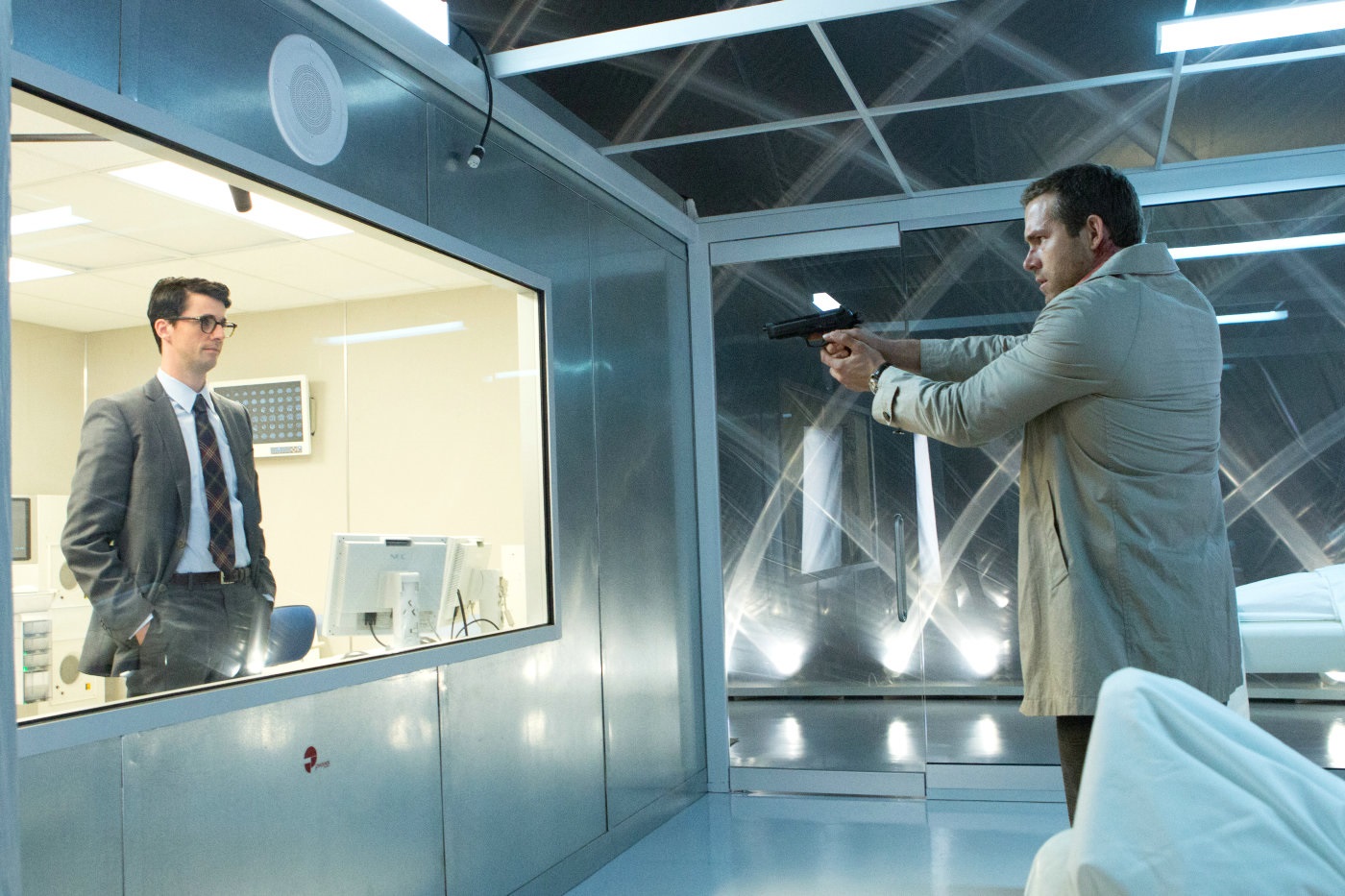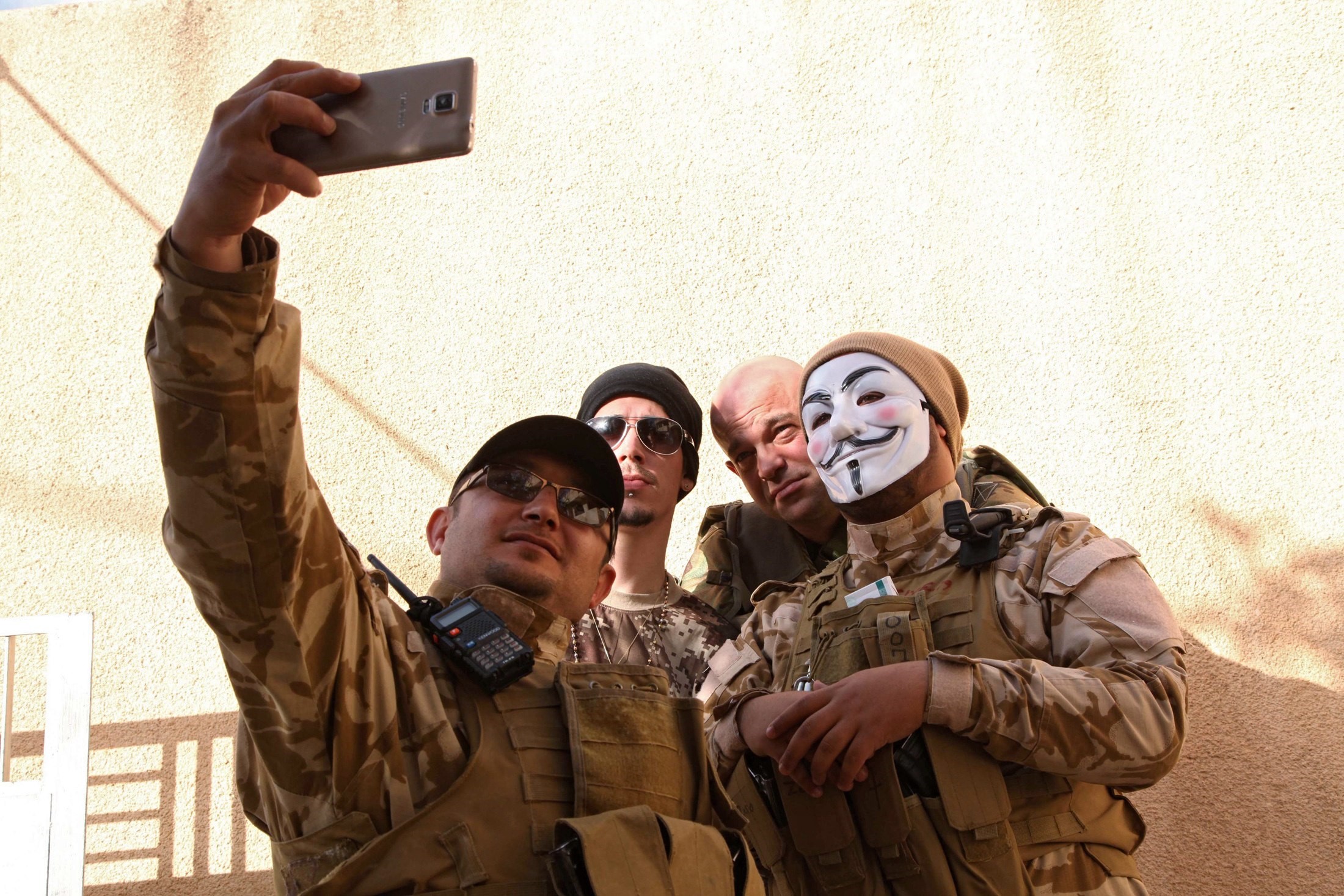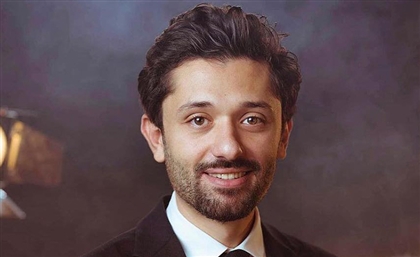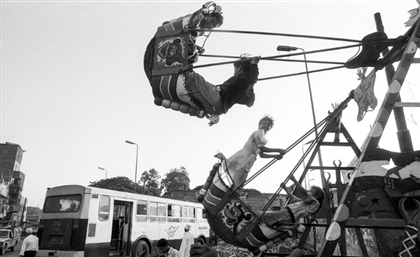Self/Less: Survival and the Selfie
In Emad El-Din Aysha's latest film review, he takes on good, evil, survival and the selfie. Beware: Political points are touched upon. This is Self/Less.

For what shall it profit a man, if he shall gain the whole world, and lose his own soul?
Or what shall a man give in exchange for his soul?
--- Mark 8: 36-37, Holy Bible (KJV).
Self/Less (2015) is a stunning movie and should be a must-see for Egyptian viewers if only for the entertainment value. Dig a little deeper though and this sci-fi thriller is a must for us for other reasons entirely. It’s only made it to the theaters in Alexandria so far but if you can head off to the North Coast; believe you me, it’s worth the trip!
Replanting your Demon Seeds
The beauty of the movie is the subtlety. It shocks you at first into thinking it isn’t subtle at all, with a billionaire hero named Damian (Ben Kingsley) – a name fit for the devil – dying of cancer and considering ‘shedding’ (like a snake) to prolong his life by transferring his consciousness into a genetically-cloned body. The religious motifs on offer are too blatant for comfort. Even the shady businessman/medical doctor who offers Damian a way out is named Albright (Matthew Goode) – as in, it’s all bright on the other side.
What keeps you going at first is the visual narrative, with stunningly shot individual sequences that compress details and move along very quickly, with gorgeous dollops of music. The director is Tarsem Singh, after all - the man responsible for The Fall (2006), easily the best squeaky clean-style visualist since Stanley Kubrick and David Lynch. Given that the movie is almost two hours long, it’s a wise approach. I wouldn’t say the performances were excellent since the pacing doesn’t allow for this. Nonetheless, the performances are very good and very natural, and the casting is superb. The dialogue is also very abbreviated and threadbare, which is as well since it forces you to think and fill in the blanks, and focus even more on the music and cinematography. In the midst of all the events on display, you slowly but surely begin to ‘notice’ things. Like Damian’s gold-plated deluxe apartment; a hint at the ‘Midas Syndrome’ - King Midas of Greek myth, who was cursed to turn everything he touched into gold, even his loved ones. What’s the point of all this fabulous wealth if you can’t spend it on those closest to you? Hence Damian’s estranged relationship with his daughter Claire (Michelle Dockery) and her non-profit environmental group of volunteers.

Golden Isolation: Like King Midas, the devilish Damian drives away those he wants to help.
Albright, then, is really a stand-in for the devil, ‘tempting’ Damian (in reverse fashion, given their names) to give up his wealth for the one thing that matters at his frail age – survival. The scene where the new and improved Damian is having sex with an endless stream of hot chicks is meant to convey the superfleousness of such a life. No genuine tender emotions, so nothing to remember them by. The sameness of it all finally gets to him; he sobers up and breaks the rules, phoning his daughter. But, alas, he has nothing to say. Then he misses his medication and the memories of the person whose body he ‘borrowed’ come back and haunt him.
Okay, that part is a bit predictable and maybe borrowed from The Island (2005) and Æon Flux (2005), but there’s more surprises along the way as the themes sink in. The borrowed body belonged to an American G.I. (played nicely by Ryan Reynolds), formerly stationed in Iraq, and someone who ‘volunteered’ to hand his body over to save his (incredibly cute) little girl Anna (Jaynee-Lynne Kinchen). The friend who introduces him to all those forgetful girls, Anton (Derek Luke), turns out to be a spy for Albright and more than that too – a shedder himself.
Neglecting the Homeland Front
Note that the G.I.’s baby girl had cancer and America’s erstwhile army doesn’t cover such unnecessary expenses. As for Claire, she’s angry at her father because he was so busy making money he didn’t have any time for her. This looks like soap opera at first then you remember Albright’s words about how Damian was building an ‘empire’ that will outlive him, his legacy, but how this still won’t make him feel immortal.
How does the American empire makes its money? By conquering resource-rich Third World countries like Iraq. What does the US do with that money once it gets it? Not spend it on the people who need it the most. The story ends in a Third World country too and you can’t help but notice that the G.I.’s wife is Latin (the really quite attractive Natalie Martinez), as is the little girl. Damian himself has a thick working class accent, telling you how he ‘shed’ his skin himself and forgot his roots. Fortunately here he regains his moral sensibilities and makes the ultimate selfless act. Better to be remembered for doing something good then just doing something memorable. There’s an old Arabic saying about that, the only catch is its reverse, telling you to do anything no matter how bad to immortalize your memory!

Body to Adopt: Natalie Martinez is one hot chick you won’t forget, when she plays the minority mommy of the year
All the more reason to watch this harrowing moral drama. You’re rooting for Damian throughout and are quite heartened by what happens to Albright in the end given his angelic namesake. And even if you’re not into this kind of thing it doesn’t matter. The movie is entertaining with its plot twists and over the top fight scenes and car chases. It’s the creepiest medical thriller since Coma (1978), and organ transplants are mentioned here too.

British Blowback: Matthew Goode as America’s well-intentioned past and future.
The Russian Rat Race
But there’s more to it than even that. Albright at one point tries to justify his actions, saying he tried cloning and it didn’t work but with more trial runs – stealing bodies – he’ll figure it out. The long-tern benefits will justify these inhumanities. It’s the way he phrases it is that is important. He doesn’t say ends justify the means or use the term collateral damage, although that’s what he means; instead he says “birth pangs.” That’s what Condoleezza Rice said about the Israeli war on Lebanon in 2006 and what Henry Kissinger said even before then in the 1970s, talking about the end of the Vietnam War and the SALT treaty with the Soviets.
We’re talking about a New World Order here, where the old never die and never change, and the young have to put up with it. Note that Anton, while black, sheds into a white body, and his original self was Russian. He becomes more and more obedient to Albright every time he comes back. Russia has become part of the Third World too and an ideal recruiting ground for such unseemly enterprises, having turned ruthlessly capitalist itself. And Albright is played by a ‘very’ British actor, signifying America’s once colonized past, the very thing it was trying to escape only to return to.

Photos Turn Selfish: Yes, that’s American-occupied Iraq if you’re wondering!
You also feel Albright is a hint at the tyranny of good intentions – like spreading democracy all over the world by force. He stylises himself as a saviour (hint, hint), helping great thinkers who were paralysed by their infirm bodies, but ended up catering to the rich instead to get the finances for the job. Thank heavens the film’s budget was so well spent, or else Tarsem Singh would have to shed something more than skin!
Find out where to watch Self/Less around Egypt on CairoScene's Cinema Guide.
- Previous Article #GetScene: 7 Awesome Instagram Photos This Week
- Next Article 10 Strictly Egyptian Moustaches That Will Inspire You This Movember
Trending This Week
-
Apr 10, 2024
























